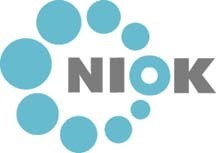NIOK Advanced Topics in Catalysis
Photo- and Electrocatalysis – A hands-on workshop
Location: TU Eindhoven, Department of Chemical Engineering and Chemistry, HELIX building
Date: 11 and 12th of April 2022
Organization team: Dr. Marta Costa Figueiredo (TU/e), Dr. Antoni Forner Cuenca (TU/e),
Dr. Thijs de Groot (TU/e), Dr. Bastian Mei (UTwente) and Dr. Ward van der Stam (UU)
Motivation
As follow up to the CAIA course (Catalysis an Integrated Approach) NIOK offers now a successor of that course where you can deepen your understanding called "NIOK Advanced Topics in Catalysis". This course consists of 4 independent modules which can be followed separately. These four modules are focused on 1) photo- and electrocatalysis (Costa Figueiredo, TU/e), 2) conversion of renewable feedstocks (Bitter, WUR), 3) theoretical catalysis (Bickelhaupt, VU), and 4) advanced topics in molecular catalysis (De Bruin, UvA).
You as NIOK PhD student or postdoc are invited to this course but also external PhD/postdocs as well as colleagues from industry are welcome.
The attended and completed modules can be mentioned as such on the NIOK bull issued with the PhD degree. Certification of attendance to individual modules can be issued.
You are herewith invited for the first part of the course: Photo- and Electrocatalysis – A hands-on workshop
This course will be complementing the graduate school on the fundamentals of electrochemistry of the Dutch initiative on Electrochemical Conversion and Materials (ECCM), which is held each year in the fall. Since the ECCM Fall school is organized in lectures by experts from the field, we planned an hands-on workshop were focus is put on basic operations in the electrochemical lab as well as data treatment, analysis and interpretation.
The course will consist of four 3-hour working blocks given by colleagues from TU Eindhoven (Figueiredo, Forner, De Groot), U Twente (Mei) and U Utrecht (van der Stam). The students will be divided in groups of 6-7 participants, that will rotate through the 4 working blocks so that everybody can follow each block resulting in a two-day program. Next to the workshops, there will be time and room for exchange and community building. A detailed program will be distributed in due time.
|
Course content: Workshop A “Fundamental aspects of electrochemistry and –catalysis; electroanalysis”, Dr. Marta Figueiredo Workshop A will consist of a set of experiments on oxygen reduction reaction (ORR). The experiments will start with cyclic voltammograms of Pt and Au electrodes for identification of fingerprint voltammetry and comparison of the catalytic activity of the two electrode materials. ORR will be used to explain the rotating ring disk technique and the data analysis will include Koutecky-Levich equation and Tafel slopes. Workshop B “Spectroscopy/spectroelectrochemistry for electrocatalysis research: a case study”, Dr. Bastian Mei and Dr. Ward van der Stam In workshop B, the participants will be introduced to several spectroscopy techniques for electrocatalysis research, from theoretical to practical aspects, including vibrational spectroscopy (IR/Raman) and X-ray spectroscopy (XPS/XAS). Afterwards, this knowledge will be applied in a case study, in which the participants will unravel the structure and composition of their virtual catalyst, and the reaction this catalyst is performing, utilizing different spectroscopy, electrochemical and microscopic characterization techniques. This workshop will give the participants solid foundation for using spectroscopy and characterization techniques in their PhD research. Workshop C “Mass transport in convection-enhanced electrochemical systems”, Dr. Antoni Forner Cuenca Mass transport processes are at the core of electrochemical technologies for energy conversion and storage (e.g. fuel cells, electrolyzers, redox flow batteries). Understanding and optimizing mass transport processes can enable improvements in performance and thus costs reduction. In workshop C, the students will investigate the role of electrode microstructure on the performance of a redox flow battery with a particular focus on mass transport overpotentials. Electrochemical impedance spectroscopy and polarization will be employed in tandem with diagnostic cells and redox couples with facile kinetics. Workshop D “Electrochemical cell design”, Dr. Thijs de Groot Workshop D explores how electrochemical cell design influences the relationship between cell potential and current density for alkaline and anion-exchange membrane water electrolysis. Both finite gap and zero gap cell configurations will be studied. A combination of polarization curve measurements and electrochemical impedance spectroscopy will be used to separate the different contributors to the cell potential, namely the ohmic resistance, the overpotentials and the equilibrium potential. The influence of operating parameters such as temperature and flow will also be measured as a basis for a discussion on what is needed to come to an electrochemical cell with top performance |
|
|
Provisional Schedule Day 1 9.30 – 9.45 Welcome and introduction 9.45 – 12.45 Practical round 1 12.45 – 13.45 Lunch 13.45 – 16.45 Practical round 2 16.45 – 18.00 Wrap-up day 1
|
Day 2 9.00 – 12.00 Practical round 3 12.00 – 13.00 Lunch 13.00 – 16.00 Practical round 4 16.00 – 17.00 Wrap-up day 2 and closing remarks
|
NIOK Advanced Topics in Catalysis Photo- and Electrocatalysis
 Registration website for NIOK Advanced Topics in Catalysis Photo- and Electrocatalysis
Registration website for NIOK Advanced Topics in Catalysis Photo- and ElectrocatalysisNIOK Advanced Topics in Catalysis Photo- and Electrocatalysisinfo@aanmelder.nl
NIOK Advanced Topics in Catalysis Photo- and Electrocatalysisinfo@aanmelder.nlhttps://www.aanmelder.nl/131287
2022-04-11
2022-04-12
OfflineEventAttendanceMode
EventScheduled
NIOK Advanced Topics in Catalysis Photo- and ElectrocatalysisNIOK Advanced Topics in Catalysis Photo- and Electrocatalysis0.00EUROnlineOnly2019-01-01T00:00:00Z
To be announcedTo be announced